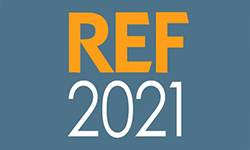REF 2021: draft 'Code of Practice' and briefing sessions
Wednesday, 01 May 2019

Earlier this year, we updated you on preparations for the REF 2021. We would like to inform you about the next important development, which relates to the REF 2021 Code of Practice.
The purpose of the Code is to set out the steps by which we will ensure transparency, consistency, accountability and inclusivity in the way that we determine (i) significant responsibility for research and (ii) research independence, which are the main criteria determining eligibility for inclusion in the REF. The Code details the processes we plan to use to identify eligible staff, the decision-makers involved in the process and how and when decisions will be made. It establishes the principles for selection of outputs and it also sets out the mechanisms by which personal circumstances will be considered.
We are writing to you now to provide you with information about the principles of the Code of Practice and to invite you to attend one of the two Q&A sessions to be held on:
- Wednesday 8 May at 13:00 in Madejski Theatre (Agriculture)
- Thursday 9 May at 12:00 in G15, Chancellor's Building
A draft version of the Code is available here for you to view. The key features of the Code are summarised below:
Significant responsibility for research: the REF rules require that institutions return all staff who are independent researchers and who have significant responsibility for research. Colleagues on Research only contracts who are independent researchers have, by definition, significant responsibility for research. Our Code establishes that all Teaching & Research colleagues are deemed to have significant responsibility for research by virtue of their contract. The only exception are some colleagues on T&R contracts in the Business School whose workload, in line with Business Schools within the sector, includes a broad range of activities such as practitioner-focussed activities and knowledge exchange that are outside the REF definition of research. The Code establishes mechanisms to determine, on the basis of workloads, whether these colleagues have had significant responsibility for research at the census date.
Research independence: Staff on Research only contracts at grade 8 and above are considered to be research independent by virtue of their job descriptions and expectations. Staff employed on Research only contracts currently on grade 7 and staff employed on Research only contracts currently at grade 6, but who hold externally funded fellowships, will be subject to assessment for research independence. The Code establishes the criteria guiding this assessment, and the mechanisms by which decisions on research independence will be made.
Output selection: The REF rules require that each Unit of Assessment returns a set of outputs that represents the research profile and quality of the Unit. The outputs will include those authored by eligible staff in the Unit employed by the University on the census date, but it can also include outputs authored by former staff. The Code describes the principles for establishing the pool of eligible outputs from which the submitted outputs will be selected, and the principles for selection of the submitted set. The process aims to ensure that the submitted set reflects the vitality and sustainability of each Unit of Assessment and the quality of the research undertaken during the REF period, whilst giving due regard to diversity and inclusion.
Personal circumstances: Some colleagues will have experienced specific circumstances that will have affected their ability to complete outputs for REF. Such circumstances can be diverse, ranging from prolonged absence from illness, to parental leave, or being an Early Career Researcher and only just embarking on their research career. The Code describes the procedures for considering personal circumstances which may have significantly impacted on an individual’s research productivity. Declarations are entirely voluntary and will involve a simple confidential process. Consideration of personal circumstances will be taken into account in the final submission on the basis of anonymised information.
The REF Code of Practice contains important information, which we strongly encourage you to review, and we hope to see you at one of the Q&A sessions.
You are welcome to send comments on the draft version of the Code to ref.admin@reading.ac.uk. Please, ensure that your comments reach us no later than 17 May 2019. The Code of Practice Working group will consider comments received when finalising the Code prior to submission to the funding bodies in early June.
